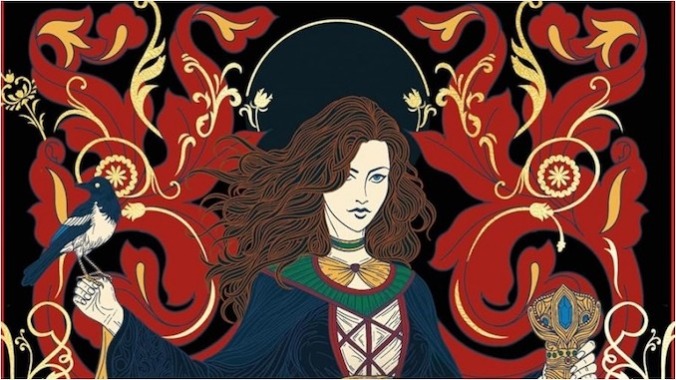In Spellbinding Sequel Le Fay, the Most Famous Sorceress of Arthurian Legend Enters Her Villain Era

Though the myth of King Arthur is centuries old, modern readers still can’t seem to get enough of it. Whether that means stories that reexamine familiar characters from new perspectives, rehash well-known story beats in different contexts, or simply focus on lesser-known aspects of the legend or the figures at its center, there are apparently still plenty of worthwhile veins to mine in this age-old saga. (Heck, this isn’t even the first Arthur-related book we’ve reviewed this week.)
Sophie Keetch’s Morgan Is My Name falls firmly into the first category, a fierce, furious, and wildly feminist reexamination of the origins of the famous Arthurian sorceress, Morgan Le Fay. A character who is portrayed as a healer, a witch, a temptress, and a monster by turns (depending on who you read), she’s one of the original legend’s most complicated and frequently confusing characters. In her debut novel, Keetch gleefully embraced the challenge of crafting a believable throughline between the many different versions of Morgan’s identity to create a cohesive and compelling whole. And now in its sequel, Le Fay, she sets her on the path toward her destiny—which contains the promise of both greatness and ruin.
Middle books are notoriously difficult things, but Le Fay—like Morgan Is My Name before it—manages to feel contained and complete in its own right. As Morgan slowly comes into her power, both magically and politically, she chafes under the rules of a society that too often says she must somehow make herself lesser in order to survive. Arthur’s Britain is one that is based on ideas of chivalry, purity, and chastity, overlaid with a specifically Christian sort of morality that Morgan finds oppressive. She still longs for the freedom and independence to determine her own future, to do everything from study magic to raise her son as she sees fit (with or without the influence of his royal father.)
The story begins with Morgan firmly ensconced in Camelot, serving as an often frustrated advisor and confidant to her brother the king, even as she resents his inability to break away from Merlin’s influence. Under her brother’s protection, she and her son Yvain are safe from her abusive husband, Urien, though Arthur’s influence doesn’t go far enough to negate things like paternal rights or the religious laws against adultery. She frequently clashes with the king about his reliance on Merlin and his prophecies, with his wife about her larger role within the court and the duties she’s meant to perform as a woman within it, and with the famous wizard himself about the limits of her magic. The unexpected return of an old flame throws her life further into chaos, and though she takes definitive steps toward unlocking the true extent of her magical abilities—through tutelage from both Merlin himself and his fae-like companion Ninianne—it is unclear how far she’s willing to go to wield it on her own terms. Until it isn’t.
In this sequel, the anger that seems to simmer beneath Morgan’s skin turns itself outward: Toward the famous Merlin, whose power she envies and whose scheming she loathes; toward Guinevere, who seeks to control her influence at court and over the king; and even toward Arthur himself, who hews to many of the patriarchal customs Morgan herself despises and drags his feet when it comes to giving her the position on his council she feels is her due. Though she grows increasingly powerful, Morgan also becomes increasingly stubborn—resenting those who refuse to see the world the same way she does, raging at those around her for mistakes she excuses in herself, and making rash choices fueled by little more than her desire to either show up or punish someone else. This Morgan is frequently petty and cruel, occasionally unlikeable, but never fully unsympathetic.
-

-

-

-

-

-

-

-

-

-

-

-

-

-

-

-

-

-

-

-

-

-

-

-

-

-

-

-

-

-

-

-

-

-

-

-

-

-

-

-








































